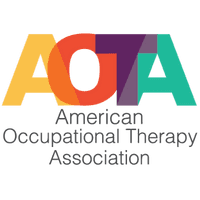What Is ADHD?
Dr. Jill Gitten Aloia, PhD, ABPP-CN

Understanding Attention Deficit Hyperactivity Disorder in Children
ADHD, or Attention Deficit Hyperactivity Disorder, is a neurodevelopmental disorder that affects millions of children and families. While the way it presents can shift with age, ADHD often persists into adolescence and adulthood, impacting school, home life, friendships, and self-esteem.
Core Characteristics of ADHD
ADHD is currently diagnosed based on persistent patterns of inattention, impulsivity, and hyperactivity that interfere with daily functioning.
Here’s what that can look like:
Inattention:
Trouble staying focused—especially on non-preferred tasks like homework or chores. Children may make careless mistakes, lose track of details, or be easily distracted by internal thoughts or external stimuli.Impulsivity:
Acting before thinking. This might include interrupting conversations, blurting out answers, or struggling to wait their turn. Some children also take physical risks without fully thinking them through.Hyperactivity:
Excessive movement, fidgeting, restlessness, or difficulty staying seated—even in situations where it’s expected (like at school or dinner).
Not every child with ADHD displays all three traits. Some primarily struggle with attention, while others show more signs of impulsivity or hyperactivity—or a mix of all three.
A Deeper Lens: ADHD as a Disorder of Regulation
While ADHD is diagnosed based on observable behaviors, it’s also helpful to understand it as a disorder of regulation.
Children with ADHD often experience difficulty regulating:
Attention
They may struggle to focus on what’s necessary (e.g., math homework) while over-focusing on what’s engaging (e.g., screens or Legos).Behavior
This includes difficulty controlling energy levels, monitoring their own behavior, and managing impulses—even when they understand the consequences.Emotions
Kids with ADHD often have big emotional reactions that feel out of proportion. Emotional dysregulation can lead to meltdowns, frustration, or sadness that appears suddenly and intensely.
This broader understanding helps explain why ADHD can impact not just schoolwork but daily life routines, relationships, and self-regulation across the board.
ADHD Is Not a Character Flaw
One of the most important things to know:
ADHD behaviors are not caused by disobedience, laziness, or lack of motivation.
ADHD is a medical condition—rooted in how the brain develops, particularly in areas responsible for regulation, attention, and executive function. This knowledge can help parents respond with empathy instead of blame, and build more effective support systems at home.
What Helps: A Comprehensive Treatment Approach
Many children benefit from a combination of supports:
Medication
Often prescribed to help increase attention and reduce impulsivity. Medication can improve regulation temporarily but typically wears off throughout the day, which is why therapy or training is also important.Behavioral Interventions
These support the development of regulation skills—like routines, time management, flexibility, and calming strategies. They're most effective when embedded into daily life.Parent Coaching & Training
Research shows that parent coaching is one of the most effective ways to support children with ADHD. When parents are equipped with the right tools, they can create consistent, supportive environments where executive function and emotional regulation skills can grow.
How Kinspire Can Help
Kinspire offers Concierge Occupational Therapy designed to meet the real-life needs of families raising children with ADHD.
Here’s what makes us different:
No waitlists – Get started in 24 hours
Licensed OTs with ADHD expertise
Daily parent coaching and messaging
Support that fits into your life—not just once a week at a clinic
Personalized plans built around your child’s routines, triggers, and goals
We help families build regulation skills, improve home routines, reduce meltdowns, and foster real, measurable progress—faster than traditional therapy alone.
💬 Ready to take the next step?
Book a free consultation with an experienced occupational therapist and start building the daily strategies that truly make a difference.




